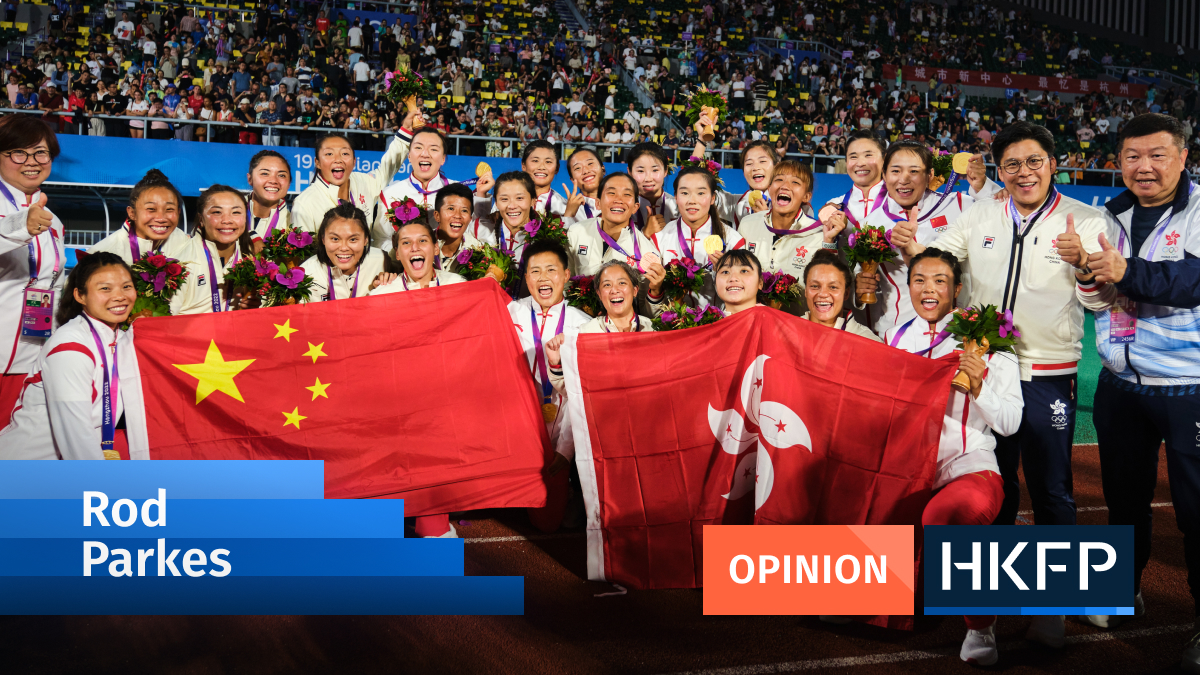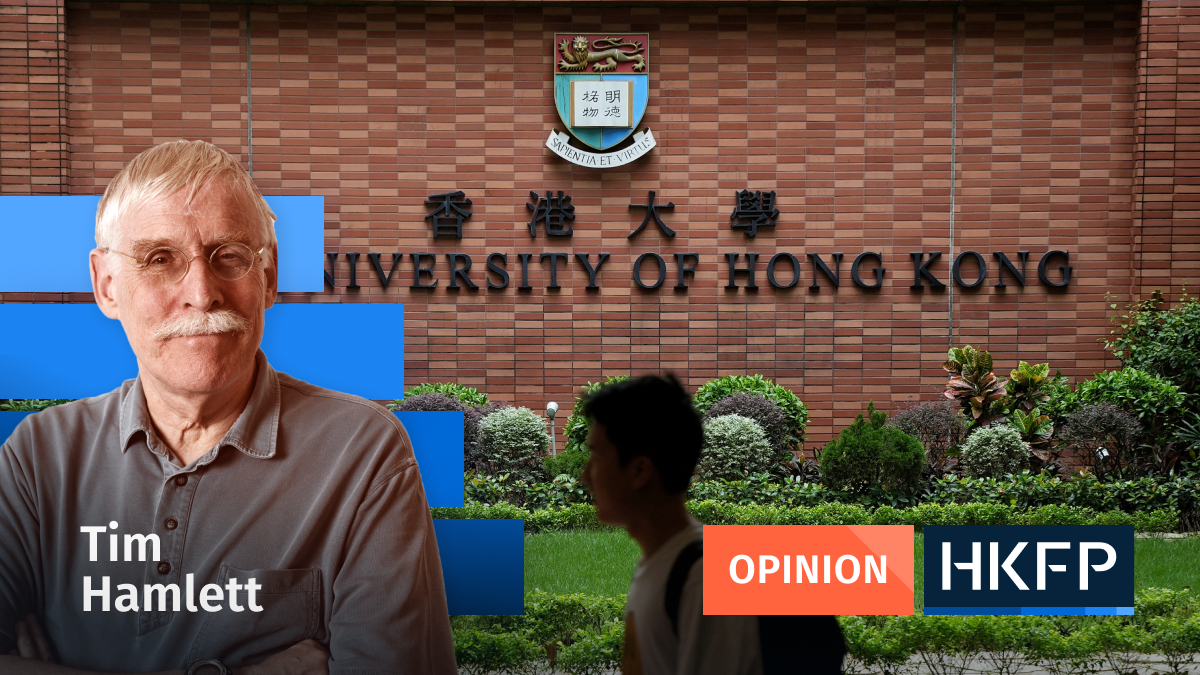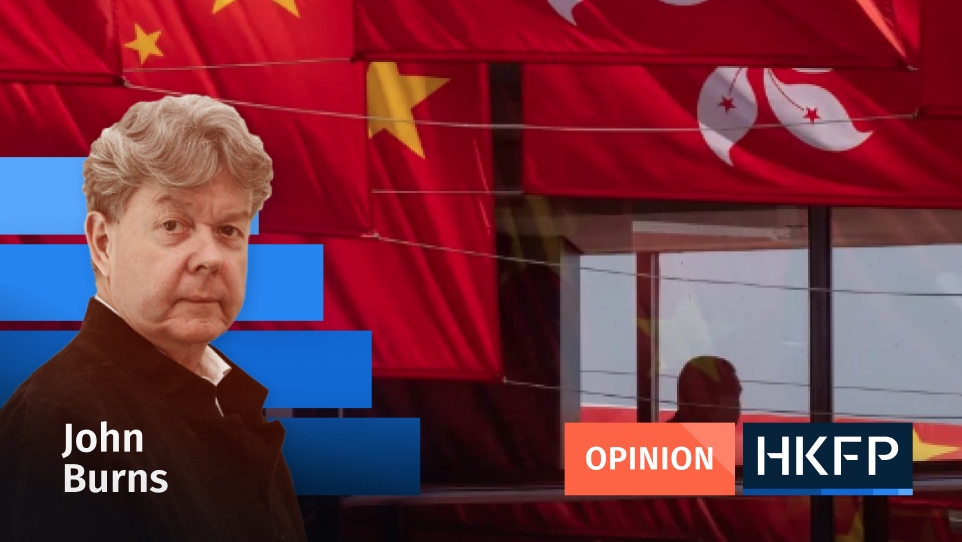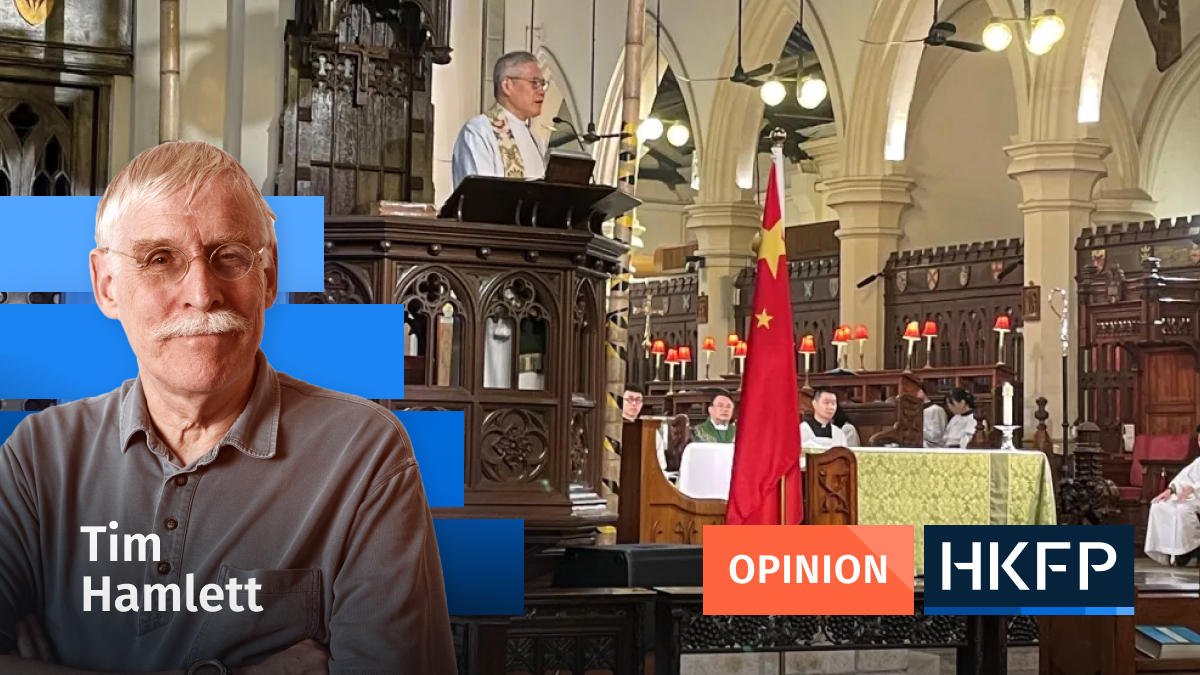The day after Hong Kong’s re-vamped Legislative Council election was held on December 19, the central government in Beijing issued a major statement explaining the changes that had been imposed. Titled “Hong Kong: Democratic Progress Under the Framework of One Country Two Systems,” it was only the second document, or White Paper, to be issued on the subject of Hong Kong’s political development since 1997.

Opinion leaders and promoters were soon out in force explaining the White Paper’s meaning and message. Given the length of the document and the density of its prose, the spin-masters’ task was an essential part of the public information exercise.
Jasper Tsang, the most widely respected of Hong Kong’s pro-Beijing politicians, was among those who tried to help explain the White Paper’s significance. He told viewers during a TVB Straight Talk interview on December 28 that the main point was the unchanged goal of universal suffrage elections for both Hong Kong’s Chief Executive and the local legislature.
The aim is still full democracy, says the White Paper. And far from sabotaging that goal, the newly revamped election system removes obstacles that blocked its progress. Like a mirage endlessly receding on some desert horizon, the goal of universal suffrage elections has suddenly reappeared amid the gloom.
In fact, all the original formulas designed to ease Hong Kong fears about life under mainland rule remain intact: “one country, two systems,” “Hong Kong people ruling Hong Kong,” “a high degree of autonomy,” and all the rest.
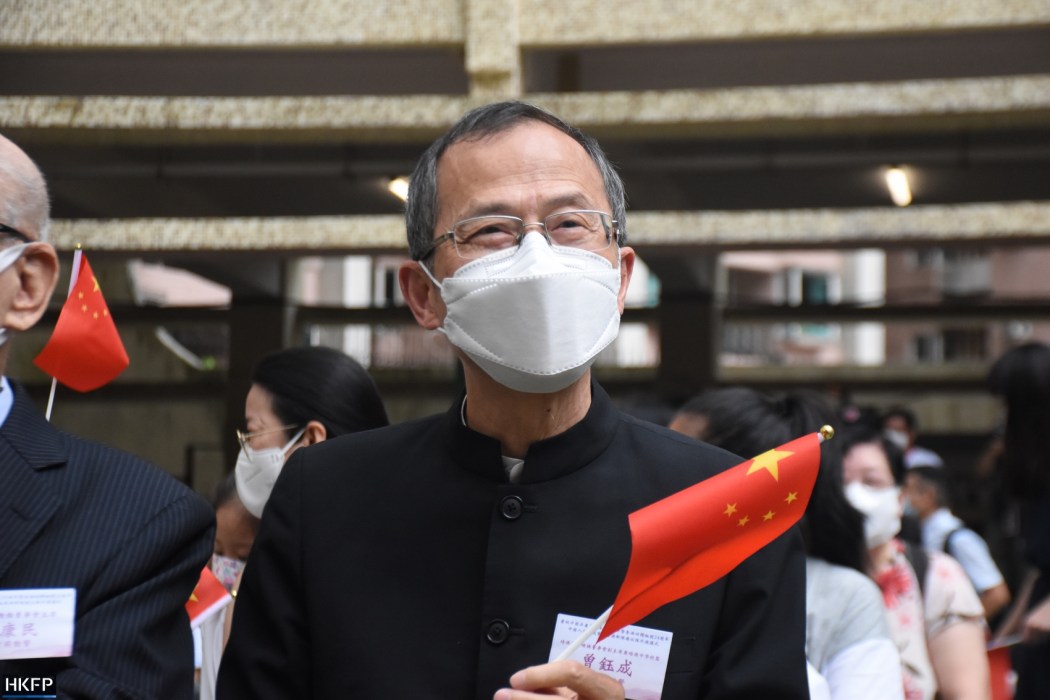
But Tsang was honest enough to acknowledge that the first election to be held under Beijing’s new rules, on December 19, was probably not as “broadly representative” as the authorities and the moderator were trying to claim. In a carefully worded response, Tsang said that many people who had previously preferred to vote for other politicians did not find them among the candidates on December 19.
What he did not say is that those missing politicians were the obstacles cleared from the path of universal suffrage because they no longer qualify under the new “patriots only” rules. Beijing can now allow universal suffrage elections to proceed because the danger such politicians posed has been removed.
The context of Tsang’s remarks is the new draconian political order imposed since Hong Kongers last went to the polls, in late 2019. On that occasion — a neighbourhood-level District Councils election — turnout was 71% of all registered voters, the highest ever recorded here. Pro-democracy candidates won a landslide victory on a joint platform of support for the 2019 protests, violence and all. Protest demands included universal suffrage elections.
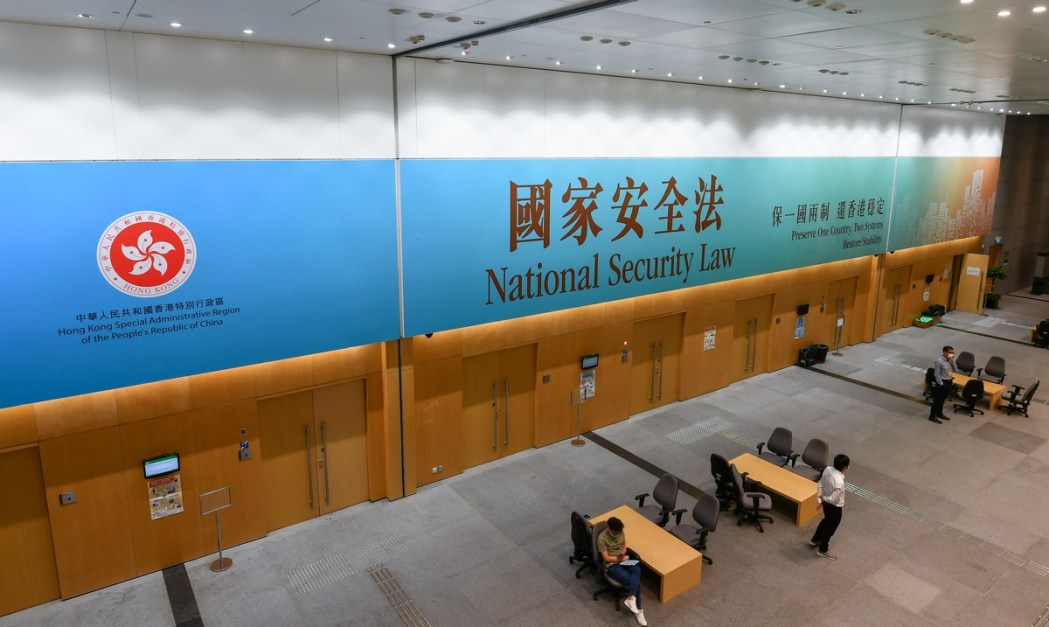
Hong Kong’s political world has been turned upside down since then, beginning with the imposition of a National Security Law on June 30, 2020. This was followed by the introduction of a redesigned election system based on strict political vetting officially aimed at producing “patriots only” elections, and the arrest or disqualification of virtually every leading member of the democracy movement.
This dramatic turn of events has naturally led to widespread complaints, both here and elsewhere, that Beijing has reneged on the promises it used to “put hearts and minds at ease,” as the saying went, before 1997.
The December 20 White Paper aims to refute these accusations with an interesting rhetorical sleight of hand. This has been done by reaffirming all the pledges that were officially made and written into law before 1997, while redefining the words the pledges contain. Critics like to use an old Chinese phrase for such a manoeuvre: “calling a deer a horse.”
Hence Jasper Tsang’s assertion that the original promises remain intact and have not been abandoned. Same words, different meanings — not confined to Chinese settings whether ancient or modern. China’s national constitution also grants the right of universal suffrage to all citizens. But it doesn’t say anything about the qualifications that must be met to stand as a candidate.
The promises of 1997
The promises are well known. They were written into Hong Kong’s Basic Law, drafted under official direction and promulgated by Beijing in 1990, to serve as Hong Kong’s post-1997 constitution.
There was no indication of a time frame and for all the arguments that have continued since, no one ever publicly demanded an explanation as to just what the Basic Law’s Article 5 actually meant. Nor has an explanation ever been given. The end date was always left vague and open to much speculation.

Article 5 seemed to be giving the whole document a 50-year shelf life, but the cryptic statement might also have had many meanings. According to Article 5: “The socialist system and policies shall not be practised in the Hong Kong Special Administrative Region, and the previous capitalist system and way of life shall remain unchanged for 50 years.”
The most authoritative explanation came from then paramount leader Deng Xiaoping, who oversaw the drafting of the Basic Law. During an April 16, 1987, meeting with Basic Law drafters, he said only that if the one country, two systems policy was a success, there would be little reason to change it after 50 years.
But he also said that to ensure the policy did not change for 50 years and beyond, “we must keep the socialist system on the mainland unchanged,” that is, “the socialist system with Chinese characteristics under the leadership of the Communist Party.”
Otherwise, the document was a masterful effort aimed at quieting fears ahead of the 1997 handover date. The Basic Law’s Article 26 guaranteed permanent residents the right to vote and to stand for election. Article 27 said residents shall have freedom of speech, of the press and publication, and the right to form trade unions. Article 85 promised judicial independence. Article 137 promised academic freedom and autonomy to all educational institutions.
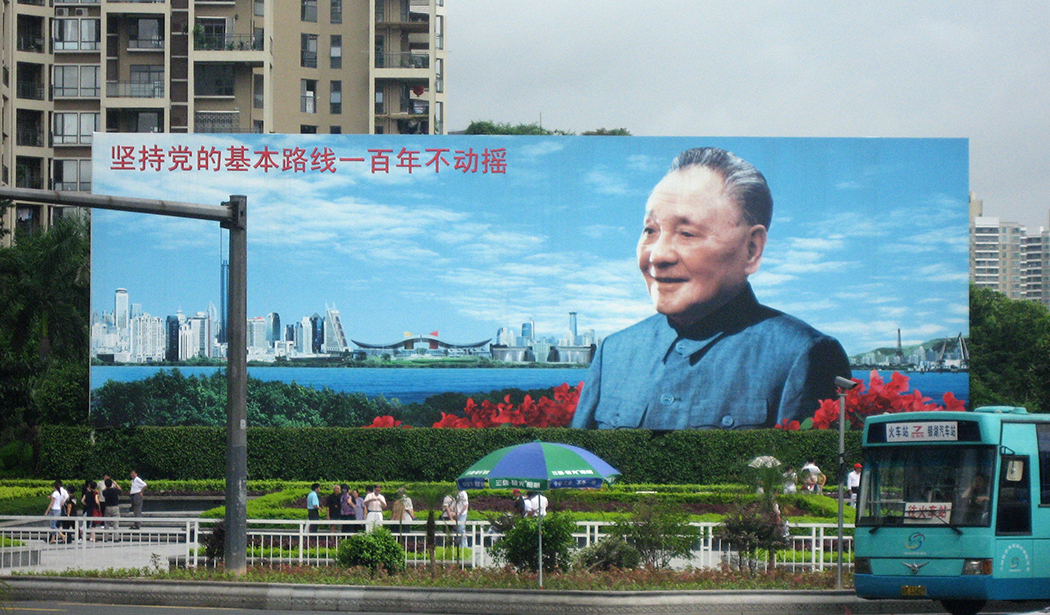
Equally important were the basic principles of reunification. Hong Kong was to enjoy a “high degree of autonomy,” designated by the term “one country, two systems.” As important as these governing principles were the promises for future political evolution, also written into the Basic Law.
According to Article 45: “The ultimate aim is the selection of the Chief Executive by universal suffrage upon nomination by a broadly representative nominating committee in accordance with democratic procedures.”
Hong Kong’s legislature can scrutinise and endorse and reject government bills but lacks the power to initiate legislation on its own. Nevertheless, here, too, “The ultimate aim is the election of all the members of the Legislative Council by universal suffrage” (Article 68).
These were also the promises and pledges that Hong Kong’s pro-democracy partisans had lived by for decades — two before 1997 and two after. So, how did the movement reach the current dead end when it was seeking was no more or less — until patience ran out in 2019 – than what Beijing had long promised? What went wrong and who is to blame?
A plausible answer
Without access to their deliberations and decisions as they went about their task in the late 1980s, it’s not possible to say for certain what Basic Law drafters had in mind. But given the course of events since 1997, the most likely sequence is that the current White Paper has finally spelled out what the Basic Law’s drafters and Beijing leaders had in mind all along.

In light of all that has happened since, they seem to have embarked on a learn-by-doing venture, in the early 1980s, by first providing the promises they knew would quiet nerves before 1997, while hoping for the best as they embarked on the uncharted course ahead.
Then, when Beijing leaders saw for certain that the currents they had set in motion were heading in the wrong direction, or at least one they could no longer tolerate or control, they stepped in with the course correction of 2020.
Yet it is not correct to give them the benefit of the doubt and conclude they did not anticipate the possible course Hong Kong’s Westernised pro-democracy campaigners might take. That’s why all the fail-safe contingencies and opt-out clauses were written into the Basic Law, along with all the basic rights and freedoms. The fear of “populism” was a constant feature of the Basic Law drafting debates.
Hence, everything that has occurred here since 2020 is authorised in some way by the provisions of the same Basic Law. In this respect, it seems as much like a skilfully designed prescription for the eventual transition to one country, one system, as a long-term guarantee for one country, two systems autonomy.

With this explanation, blame for the calamitous ending must go to Beijing, not Hong Kong and its campaigners. Their democracy movement had always worked on the assumption that “universal suffrage” meant elections featuring one-person, one-vote to elect leaders of the majority’s choice. That was why campaigners added the word “genuine” to their universal suffrage demand as Beijing procrastinated from one decade to the next, with one excuse after another.
If that was not their intention, Beijing leaders had more than enough time to say so plainly, in language that everyone could understand — rather than the elusive prose favoured by drafters of Communist Party documents.
They might easily have done so because leaders and drafters also knew very well the difference between Western-style one-person, one-vote elections and the style practised in China. One of the clearest explanations of the difference came from Deng Xiaoping, in that same 1987 meeting with Basic Law drafters.

He said it would not be appropriate for Hong Kong to have a separation of powers, as in the United States. And it would not be appropriate to judge whether the Hong Kong system is democratic or not by comparing it to those of Western-style governments.
He also said it would not do for Hong Kong to be allowed to hold Western-style general elections. This was because the people who administer Hong Kong should be those who “love the motherland and love Hong Kong” — another way of saying “patriots only.” And he didn’t think Hong Kong voters could be trusted to elect such people if given a free choice as in a Western-style general election.
Even back then, Deng seems to have had a fairly accurate view of Hong Kong voters, who were only just then being introduced to the routines of universal suffrage elections.
Deng also explained the Chinese system of elections, which entailed “indirect elections” for posts above the county level, and direct universal suffrage elections only for those at the county level and below. He did not add that candidates for these latter posts must first be approved by the local Communist Party officials.
But these local level elections are held in accordance with the “Fundamental Rights and Duties” chapter of China’s national constitution. Article 34 formally grants all citizens the right to vote and to stand for election.

The chronology leading from 1997 to 2020 also suggests that Beijing was all along working with its own definition of universal suffrage elections — even as Hongkongers were campaigning for a Western-style alternative.
Annexes specified the design for the first Chief Executive Election Committee, to be in use for the first 10 years after 1997. But after the unexpectedly huge resistance in 2003, to passage of national security legislation as specified in Article 23 of the Basic Law, Beijing made some adjustments in the original Basic Law promises.
Accordingly, in 2004, prior permission by Beijing was mandated as a prerequisite for any changes in election procedures as the promises of electoral reform continued to evolve. The original Basic Law version indicated that Beijing need only give approval once Hong Kong had come up with a proposal for ongoing reform. In 2007, Beijing issued another decision delaying the first universal suffrage Chief Executive election for another 10 years, until 2017.
That was when Martin Lee, one of the Hong Kong democracy movement’s founding fathers, said he worried he might not live long enough to see the day. Now in his early 80s, Lee’s worry remains. His signature message has always been that without genuine universal suffrage elections, there can be no high degree of political autonomy for Hong Kong, as Beijing originally promised.

But then on August 31, 2014, Beijing issued yet another decision. It was a statement of approval, finally, for the first universal suffrage Chief Executive election, scheduled for 2017, two decades after Hong Kong’s return to Chinee rule.
Beijing had already announced that a universal suffrage Chief Executive election must precede that for the Legislative Council (LegCo). This was because a popular election would lend added authority and Hong Kong’s local government must remain “executive-led” in all respects.
The catch in the 2014 decision was that before the popular vote, candidates would have to be approved by the same safe Beijing-designed Election Committee that Beijing had designed to endorse Beijing’s approved Chief Executive candidates! It is also essentially the same committee that is now the powerful centrepiece of Hong Kong’s newly revamped election system.
In this way, said the critics in 2014, with or without going to all the trouble of holding a universal suffrage election, the end result would be the same: Beijing would choose its favoured candidate, just as the Election Committee had been doing since 1997, and the voters would have no real choice.
It was this decision that sparked the Occupy-Umbrella Movement’s 79-day street blockades in late 2014, followed in turn by the growing defiance that culminated in the 2019 protests.

The White Paper gives short shrift to the 2004-2014 decade — neglecting the debates that continued non-stop during those years over the nature of “genuine” democratic elections. It does not mention the 2010 negotiating effort of Democratic Party leaders Albert Ho and Emily Lau, and how they managed to defeat the proposal advanced by the main pro-Beijing political party, the Democratic Alliance for the Betterment and Progress of Hong Kong (DAB).
The DAB’s proposal for progressing toward universal suffrage elections was to expand the directly elected element in LegCo by introducing a People’s Congress mainland-style indirectly elected alternative.
The idea was to let District Councillors, who were themselves directly elected at the lowermost neighbourhood level, elect some of their own members to become, concurrently, Legislative Councillors.
If successful, this method could eventually be used to eliminate all the small-circle occupation-based indirectly elected Functional Constituencies. Their legislators would be replaced by the “dual-use” District Councillors — thereby achieving a legislature wholly elected on a one-person, one-vote basis!
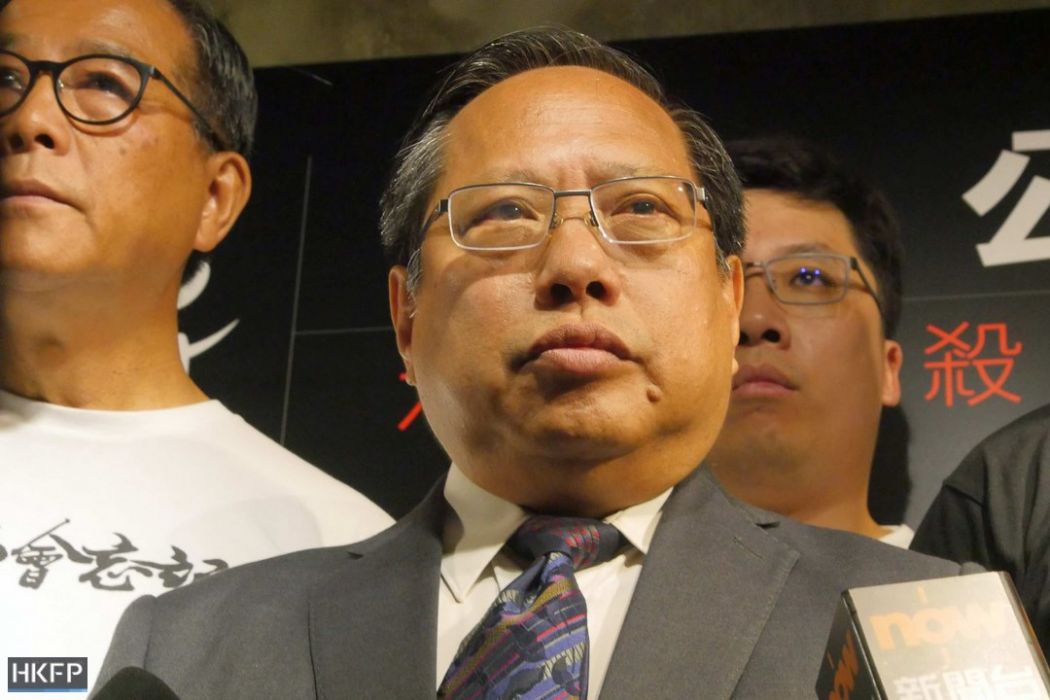
Nor does the White Paper mention the vilification the two negotiators and their Democratic Party contingent suffered throughout the annual July First march that year, as angry supporters denounced the compromise they had finally reached.
The prior pledge was to accept nothing less than five additional directly elected LegCo seats. Albert Ho later told a university audience the march that day had been the worst experience of his entire life.
Beijing finally agreed to the Democratic Party’s compromise solution, whereby five LegCo seats would still be filled by District Councillors nominated by their fellow District Councillors. But all voters in Hong Kong would make the final choice among the candidates nominated.
These became the five “extra” seats — in the process of transition to a council wholly elected by universal suffrage. Thus, Hong Kong’s old, pre-2021, 70-seat legislature had 35 seats elected by universal suffrage on a one-person-one vote basis with open nomination for all candidates. Additionally, five legislators were also elected by universal suffrage but nominated by and from among the District Councillors.

Given this convoluted course of events, it’s probably safe to conclude that Beijing never really had any intention of allowing “genuine” universal suffrage elections, even as Hong Kong campaigners grew more defiant in their demands.
Had officials ever acknowledged as much, everyone would at least have been spared a fruitless decades-long struggle. But as Beijing-based commentators have recently begun to acknowledge, the 1997 handover would not have gone as smoothly as it did if the intended destination had been announced in advance.
The price of that smooth return is now being paid by the leaders and followers of Hong Kong’s democracy movement that finally grew strong enough, by 2019, to demand what they thought they had been promised by the Basic Law in 1990.
The White Paper’s version of events
This conclusion also follows from the December 2021 White Paper, which signals the end of Hong Kong’s democracy movement and its demand for Western style universal suffrage elections.
Instead, the White Paper points the way forward with a presentation that hails mainland-style political standards and all that goes with them including strict political vetting, indirect selection, and consultative procedures — all transposed for use in the service of “one country, two systems.”

The White Paper, of course, does not say that Beijing officials have no one to blame but themselves for the calamitous events of the past two years. Nor does it say that if all they had in mind for Hong Kong was mainland-style democracy, they should have said so long ago.
Officials never acknowledge mistakes in so many words, much less apologise. Instead, the White Paper continues with the official version of events that blames everyone else, but especially anti-China agitators in Hong Kong and the foreign forces that aided and abetted them.
Nor does the White Paper distinguish among the various kinds of “agitators.” No one is spared, whether veterans like Albert Ho and Emily Lau and the original cast of “pan-democrats” campaigning for genuine universal suffrage elections, or their young “localist” successors who gave up the veterans’ approach as futile. All are now lumped together and thrown into the same bag ready for disposal — stigmatised by being placed beyond the “patriots only” pale.
The White Paper does contain a reasonably clear description of the way ahead, along with a recap of the relevant past. There are six sections, beginning with pre-1997 colonial days when there was no democracy under British colonial rule. Democratic reforms were only introduced, with an ulterior motive, after Beijing announced its intentions to resume sovereignty come 1997.
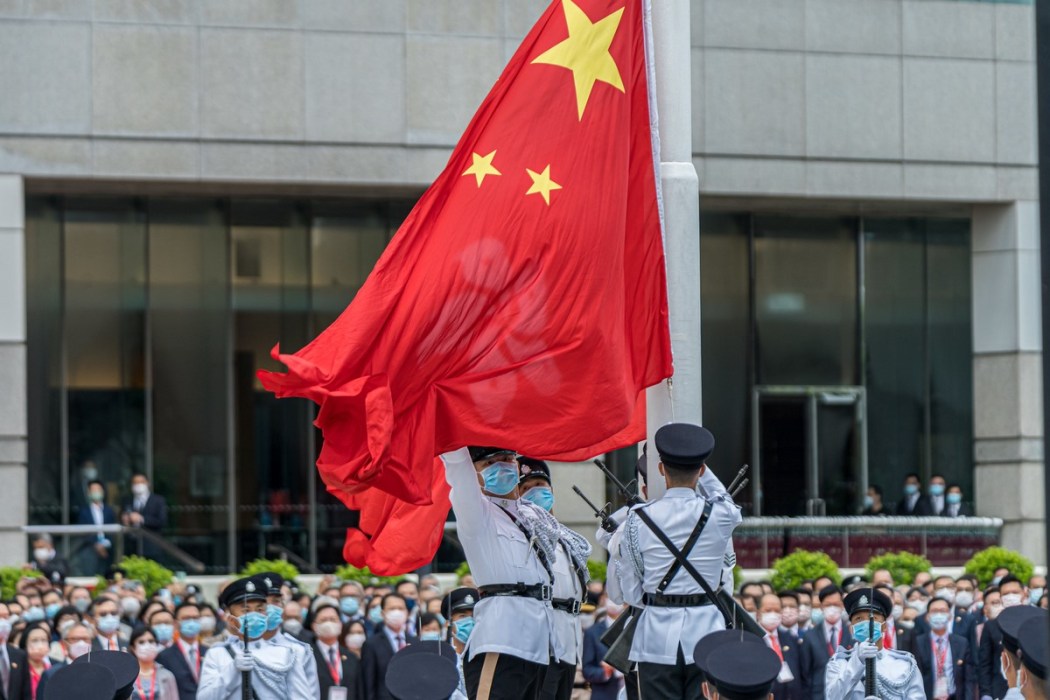
Hong Kong’s return to Chinese rule marked the beginning of Hong Kong’s democratic development. The central government remains committed to the pursuit of democracy in Hong Kong. Anti-China agitators disrupted that development, which has now been put back on the right track. Future prospects are bright.
Accordingly, China’s Communist Party leaders give themselves full credit both for the original “one country, two systems” construct, designed for Hong Kong’s return to Chinese rule, and for the drastic 2020-21 overhaul that has now put Hong Kong back on the correct path.
That path is defined, in effect, as an elaboration of the elusive Basic Law Article 5, with its references to socialist and capitalist systems. Or in the White Paper’s words: “With their political vision, the CPC and the Chinese government are certain of the long-term success of the socialist system on the mainland. They are equally certain of the long-term success of both the capitalist system in Hong Kong and a form of democracy suited to its realities.”

All the promises of 1997 will continue to be honoured and called by the same names as before. Except that there has now been, in Beijing’s view, a rectification of names. Universal suffrage means elections with candidates who can pass the strictest of political tests. This can be done by demonstrating their full embrace of Beijing’s political definitions and designs.
Henceforth, no one will be allowed to join the governing establishment and contest elections who cannot pass this test. Those who do are regarded as “patriots” who love China and love Hong Kong. Others are not welcome.
Citizens are free to endorse the new style candidates or not at election time, but voters will have no other choice — the final nail in the coffin for Hong Kong’s post-1997 democracy movement, or so Beijing hopes.
Support HKFP | Policies & Ethics | Error/typo? | Contact Us | Newsletter | Transparency & Annual Report | Apps
| HKFP is an impartial platform & does not necessarily share the views of opinion writers or advertisers. HKFP presents a diversity of views & regularly invites figures across the political spectrum to write for us. Press freedom is guaranteed under the Basic Law, security law, Bill of Rights and Chinese constitution. Opinion pieces aim to point out errors or defects in the government, law or policies, or aim to suggest ideas or alterations via legal means without an intention of hatred, discontent or hostility against the authorities or other communities. |
Help safeguard press freedom & keep HKFP free for all readers by supporting our team

More HKFP OPINION:
HKFP has an impartial stance, transparent funding, and balanced coverage guided by an Ethics Code and Corrections Policy.
Support press freedom & help us surpass 1,000 monthly Patrons: 100% independent, governed by an ethics code & not-for-profit.


